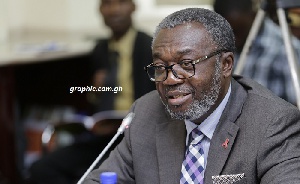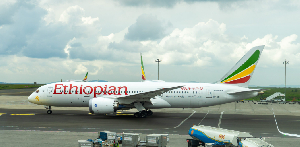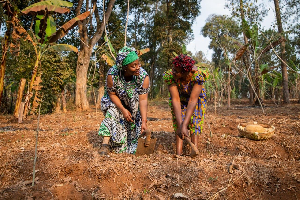Dr Anthony Nsiah-Asare, Director-General of the Ghana Health Service, has identified some weaknesses in the overall national coordination and harmonisation of health research system within the country at the policy-making level that needed immediate redress.
He said though there are excellent individuals and institutional capacity within the country to direct set priorities, coordinate and review health research within the context of these academic institutions or specifically, Ministry of Health, there are many challenges to surmount.
Dr Nsiah-Asare was speaking at the opening of the Kick-Off meeting for the development and strengthening of National Health Research Systems (NHRS) in Sub-Saharan Africa taking place in Accra.
It is under the auspices of the European Developing Countries Clinical Trials Partnership (EDCTP) in collaboration with the World Health Organization Africa and the Ministry of Health.
The goal of the meeting is to initiate the process towards the development of strategic policy blueprint that would outline the linkages between EDCTP programme activities and the development and strengthening of NHRS of the 17 African member associations.
Dr Nsiah-Asare said research plays a crucial role in shaping policy and implementation of health programmes, which has guided the GHS to formulate policy, programmes implementation due to its empirical data, which answers programme challenges.
He said apart from GHS Research and Development Division sited at Navrongo, Kintampo and Dodowa, some major institutions carry-out health-related research including Noguchi Memorial Institute for Medical Research, Centre for Scientific and Industrial Research (CSIR) and the Kumasi Centre for Collaborative Research into Tropical Medicines.
He said clinical trials undertaken by the centres have resulted in positive policy decisions including the Meningitis vaccine trials, rotavirus, HPV and recently the RTSS malaria vaccine trial.
Dr Owen Kaluwa, WHO Country Representative, said inadequate coordination capacity by governments and capacity to translate research into evidence for action of the multiple actors in the research arena has limited the extent of research impelling action.
He said “as we continue to support countries overcome these challenges, we need evidence on what is feasible, what is affordable and what offers maximum return on investment.”
He said the WHO was committed to support member states to strengthen their NHRS and to address the various pressing health challenges as the continent advances towards Universal Health Coverage
Dr Kaluwa expressed optimism that the outcomes of the meeting would assist Africa overcome the high burden of communicable and non-communicable diseases, low coverage of essential interventions and to actualize the attainment of the Sustainable Development Goals.
Dr Leonardo Simao, EDCTP Africa High Representative, said his outfit envisages the provision of guidance and support to governments for strengthening the capacity of NHRS to optimize national research production and utilization.
Participants attending this meeting are from the WHO-Afro Advisory committee on health research and development, the EDCTP Secretariat, WHO-Afro Health and Services cluster team, AU and regional economic communities, health professionals within Ministries of Health, Science and Technology and higher learning institutions, ethics bodies and regulatory authorities across Africa.
Health News of Tuesday, 10 July 2018
Source: ghananewsagency.org













